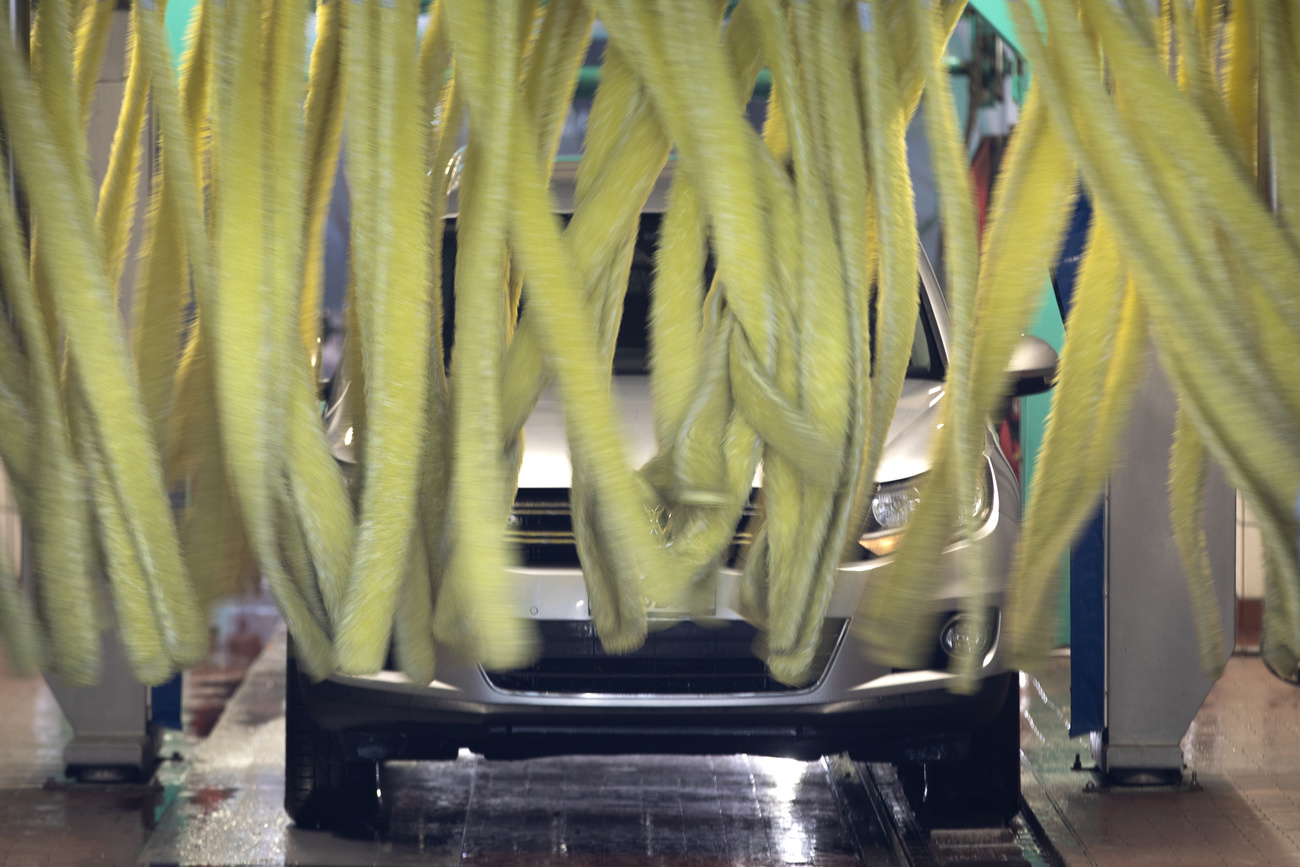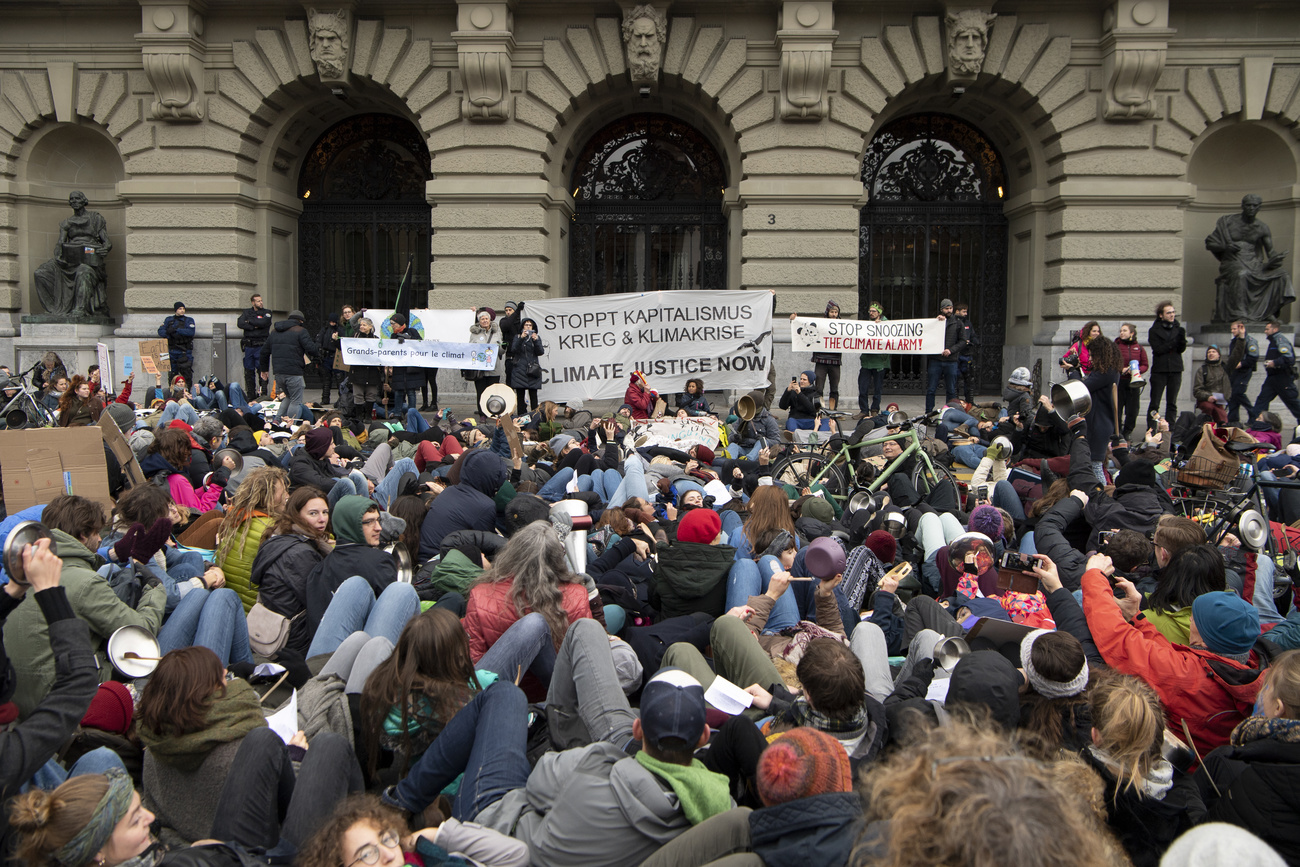
No solution for brass plate firm impasse

The existence in Switzerland of so-called brass plate companies, that operate without staff to save taxes, continues to sour relations with the European Union.
Brass plate firms, along with foreign holding companies based in Switzerland, do not have to pay tax on overseas earnings. The EU argues that this distorts competition and the ongoing row is one reason that bilateral talks have stalled.
Market research firm Moneyhouse conservatively estimates that some 30,000 brass plate firms are located in Switzerland, funneling earnings through what amounts to little more than an address. Watchdog groups believe the real figure could be above 100,000.
Andreas Missbach of the pressure group Berne Declaration is particularly concerned that some firms, particularly commodities enterprises, are depriving underdeveloped countries of vital tax revenues with this model.
“By booking profits in Switzerland, these companies are draining poorer countries of revenues despite doing most of their business in these parts of the world,” he told swissinfo.ch.
Most brass plate firms are situated in Zug, Basel and Geneva, providing a considerable revenue stream for these cantons.
Pressure applied
In many cases, such companies are administered by local corporate lawyers that openly display their services online. Some websites also offer legal, secretarial, management and bookkeeping services while others even provide the names and credit histories of companies that have closed down as a shell in which to set up shop.
Some specialist administrators run dozens of foreign companies at a time from the same address. Moneyhouse found 245 companies registered at one address in Lucerne.
The EU has been putting pressure on Switzerland to put an end to this practice, along with tax exemptions on the overseas earnings of foreign holding or mixed companies. Switzerland has denied the charge that this strategy violates a 1972 free trade agreement with the EU.
Two years ago, former Finance Minister Hans-Rudolf Merz announced his intention of meeting the EU’s demands with a series of corporate tax reforms. However, the subsequent global offensive against banking secrecy shelved the plans.
Missbach believes that the economic problems being experienced by EU member states has given Switzerland more breathing space.
“As long as the EU is so completely preoccupied with its internal problems, it is in no position to apply pressure on Switzerland,” he said. However, he added that he expected a “realistic” approach to the problem from Merz’s successor, Eveline Widmer-Schlumpf.
Lost revenues
The EU may be preoccupied elsewhere for the time being, but it has shown signs that it is far from having forgotten the subject. Exploratory talks on the future of bilateral relations with Switzerland earlier this year revealed that corporate taxation will remain on the agenda.
The Swiss Finance Ministry confirmed to swissinfo.ch that Switzerland is prepared to hold talks on the matter, but the two sides have yet to agree to a protocol to such meetings and how exactly far they would go.
Germany and France, that are particularly opposed to other countries setting lower tax rates to attract foreign companies, also put pressure on Ireland to raise its corporate rate in return for an EU bail-out package. The pressure did not succeed, but further demonstrated the resolve of Brussels to harmonise taxation within the bloc.
Thomas Cottier, professor of European and international economics at Bern University, believes that it is only a matter of time before Switzerland has to start giving in. But there has so far been little progress in finding ways to replace lost tax revenues if brass plate companies are outlawed.
“The goal is to bring about a non-discriminatory regime [that does not exempt overseas profits from tax] while maintaining Switzerland’s competitive edge through taxation,” he told swissinfo.ch.
The two most likely way of achieving this appears to be by lowering the rate of corporate taxes across the board for both domestic and foreign earnings.
Another means could be by redistributing a central fund that funnels cash from richer cantons to less well off counterparts. Cottier believes this might be a practical solution to offsetting lost corporate tax revenues if Switzerland succumbs to EU demands.
A KPMG survey of international corporate tax found that, despite the economic downturn, the average top rate had fallen from 25.44% in 2009 to 24.99% this year.
However, indirect taxation, such as VAT, has risen from 15.41% to 15.61%.
Switzerland has for years sought to attract global firms by offering competitively low corporate tax rates.
Swiss cantons that set their own rates compete to attract European headquarters or holding companies within their borders. Smaller cantons, such as Zug or Schwyz, have been particularly successful with their campaigns.
A recent international comparison of corporate tax rates showed levies of between 12.5% and 24.5% depending on which canton a company is located in. Obwalden and Appenzell Outer Rhodes offered the lowest rate and Geneva charged firms the most.
The mean 18.8% rate of all cantons compares to 40% in the US, 33% in France, 29.4% in Germany, 28% in Britain, 17% in Singapore and 12.5% in Ireland.
Several multinational firms, such as food manufacturer Kraft, Ebay, Procter & Gamble, Microsoft, Dow Chemicals and Google have set up or have been expanding operations in Switzerland in the past few years.
However, Switzerland’s system of tax competition – effectively undercutting the rates of neighbouring countries – has drawn criticism from the European Union.
The EU considers the practice to be in violation of a 1972 free trade agreement signed between the European bloc and Switzerland. The Swiss have denied this is the case, but the row rumbles on despite a lull in proceedings in the last 18 months.

In compliance with the JTI standards
More: SWI swissinfo.ch certified by the Journalism Trust Initiative












































You can find an overview of ongoing debates with our journalists here . Please join us!
If you want to start a conversation about a topic raised in this article or want to report factual errors, email us at english@swissinfo.ch.